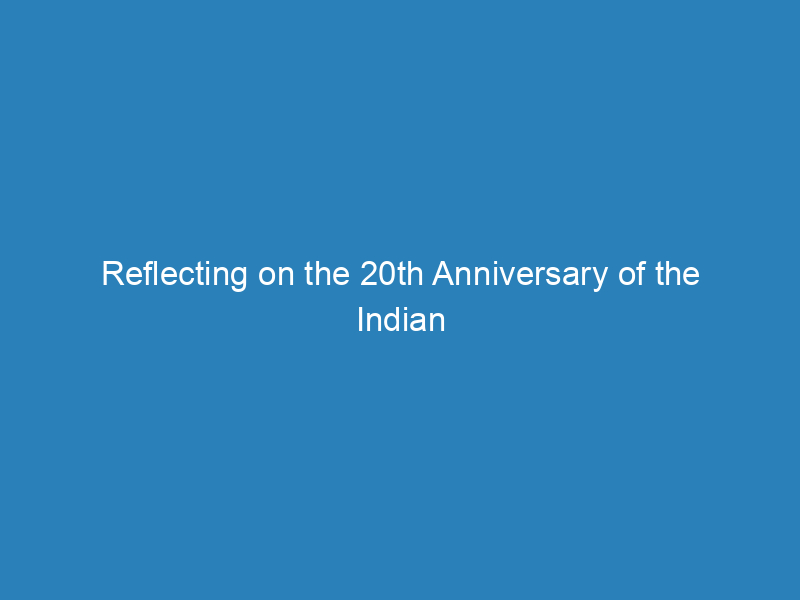
Reflecting on the 20th Anniversary of the Indian Ocean Tsunami: Lessons in Disaster Risk Reduction and Resilience
On December 26, 2004, the Indian Ocean tsunami unleashed its catastrophic force, leading to one of the deadliest natural disasters in recorded history. With an estimated 230,000 lives lost and severe destruction across fourteen countries, this tragedy served as a profound wake-up call about the vulnerabilities our global society faces.
The Lessons of the Tsunami
Kamal Kishore, who currently serves as the Special Representative of the UN Secretary-General for Disaster Risk Reduction, reflects on the event as a pivotal moment for global awareness regarding disaster risks. “The tsunami was a wake-up call for humanity to do more, to better understand disaster risks,” he states, emphasizing the need for a collective response.
A Widespread Impact
The tsunami’s devastation was not confined to the countries along the Indian Ocean. While nations like Indonesia, Sri Lanka, India, and Thailand bore the brunt, the disaster’s ripple effects reached far beyond. “For Sweden, for example, the tsunami remains the nation’s biggest disaster this century in terms of lives lost,” Mr. Kishore notes. This incident highlighted the interconnectedness of our world and exposed significant gaps in disaster risk management practices.
Global Solidarity in Crisis
Reflecting on his experience with the UN Development Programme during the response and recovery efforts, Mr. Kishore recalls the overwhelming global solidarity that emerged in the wake of the disaster. “Human beings are capable of infinite compassion, generosity, and solidarity,” he says, underscoring how the global community rallied to provide aid and resources.
Establishing Early Warning Systems
The immediate aftermath of the tsunami spurred the creation of the Indian Ocean Tsunami Warning System, developed in collaboration among countries separated by vast oceanic distances. “Facilitated by UNESCO, this system was established through the efforts of countries from the global south, including India and Indonesia, as well as Japan, Australia, and the United States,” Mr. Kishore explains. However, he cautions that maintaining and updating these warning systems is vital for effective disaster preparedness. “An early warning system is not a one-time investment. These systems need to be practiced and tested frequently,” he advises.
A Vision for the Future
The UN Secretary-General’s initiative, “Early Warnings for All,” aims to provide comprehensive multi-hazard early warning systems by 2027. This ambitious plan seeks to cover a range of natural hazards, including tsunamis and extreme weather events. Mr. Kishore emphasizes the importance of public awareness and preparedness, particularly for infrequent but high-impact events like tsunamis. He highlights Japan’s leadership in promoting tsunami awareness, noting that November 5 has been designated as World Tsunami Awareness Day, during which campaigns like #GetToHighGround are launched globally.
Empowering Future Generations
Mr. Kishore shares a poignant example of empowerment through education: the story of Tilly Smith, a 10-year-old girl whose knowledge gained from a geography lesson on tsunamis helped save lives in Thailand. “When children learn about disaster risks, they become drivers of resilience for their communities,” he emphasizes.
A Holistic Approach to Resilience
As we move forward, Mr. Kishore advocates for a holistic approach to resilience that goes beyond constructing stronger buildings. “It is essential to consider improved livelihoods and cohesive societies,” he states, calling for an understanding of the socio-economic and cultural contexts in which communities exist. He also points out the protective benefits of natural ecosystems, such as mangroves, which played a crucial role in mitigating tsunami impacts in places like Cuddalore, Tamil Nadu, India.
The Role of Governance
The countries most affected by the tsunami have learned the importance of robust disaster governance. “The most affected nations—India, Indonesia, Maldives, Sri Lanka, and Thailand—have shared their experiences and enacted new legislation for disaster risk management,” he notes.
Commitment to Future Generations
As we commemorate the 20th anniversary of the Indian Ocean tsunami, Mr. Kishore reminds us of our obligation to future generations. “We must not forget the lessons of 2004. Investing in early warning systems and disaster education is investing in our children’s future,” he asserts. With the increasing risks posed by climate change, these lessons are more crucial than ever as we strive to convert painful memories into a resilient and secure future for all.

